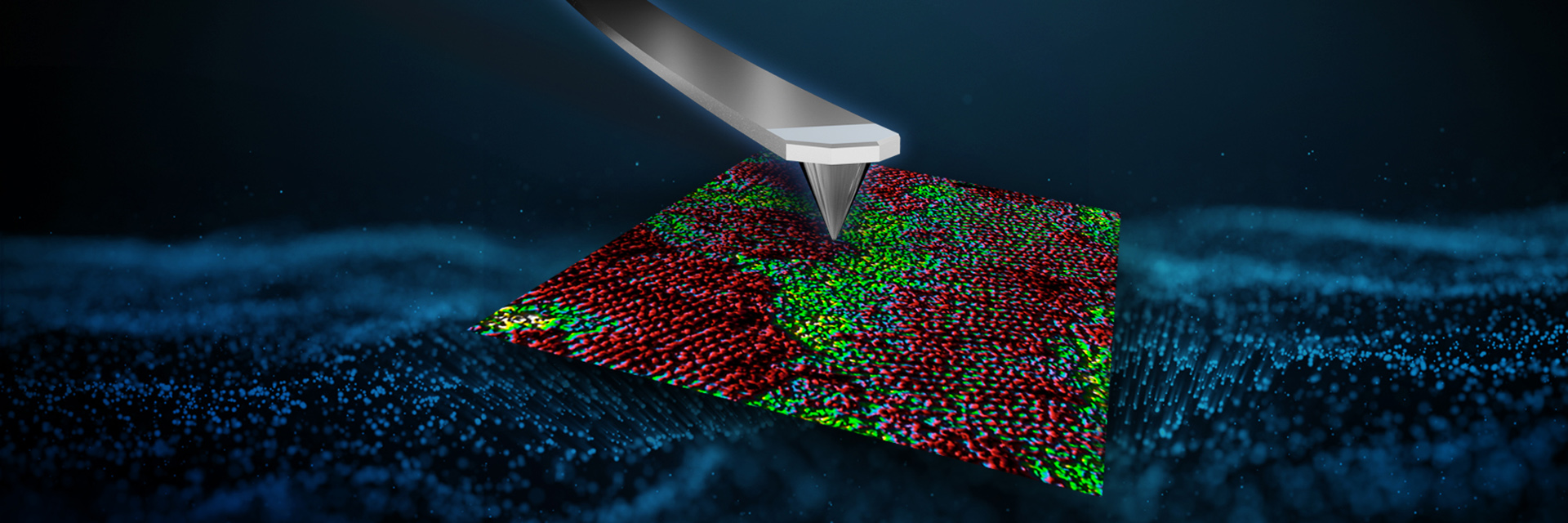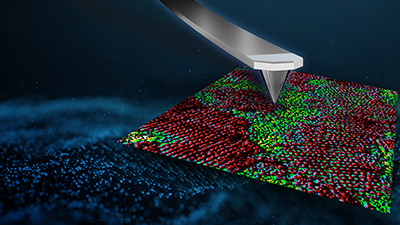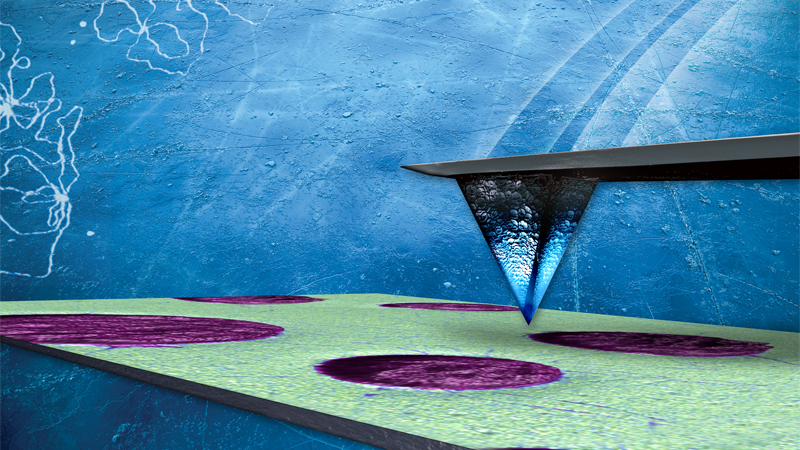

European AFM User Meeting [2022]
AFM researchers and applications experts discuss high-resolution AFM imaging and the nanochemical, nanomechanical, and nanoelectrical characterization of advanced materials
Watch presentations by an impressive panel of guest speakers and technical demonstrations hosted by Bruker AFM applications experts.
The focus of the 2022 AFM User Meeting was the use of AFM for high-resolution imaging and the nanochemical, nanomechanical, and nanoelectrical characterization of advanced materials used in semiconductor and nanomaterials research.
Explore AFM Applications in Advanced Materials Research
The meeting includes two sessions — each with a different focus — comprised of a series of talks, live Q&A sessions, and technical demonstrations of cutting-edge Bruker AFM instruments, including the new Dimension IconIR AFM.
Our speakers discuss their latest research with AFMs and cover topics as varied as
- The electrical characterization of nitride transistors, dies, and semiconductor materials;
- The use of AFM in the study of mineral-fluid reactions; and
- The analysis of network-forming polymers, fuel cells, electrolyzer components, and lignocellulosic surfaces.
Available Recordings
| Length | Topic | Speaker(s) |
|---|---|---|
| 5 minutes | Welcome/Introduction | Dr. Peter De Wolf, Worldwide Application Director, Bruker Nano Surfaces & Metrology |
| 15 minutes | Latest Bruker AFM Developments | Dr. Mickael Febvre, Application Manager Europe, Bruker |
Session 1: Semiconductors & Nanoelectrical Applications
| Length | Topic | Speaker(s) | Abstract |
|---|---|---|---|
| 25 minutes | Nanoscale Electrical Characterisation of Nitride Transistor | Prof. Rachel Oliver, University of Cambridge, UK | Read More |
| 20 minutes | Direct Observations of Mineral-Fluid Reactions using Atomic Force Microscopy | Dr. Encarnación Ruiz Agudo, University of Granada, Spain | Read More |
| 20 minutes | Analysis of Fuel Cell and Electrolyzer Components with Nanoelectrical and Nanomechanical AFM | Dr. Tobias Morawietz, German Aerospace Center (DLR), Germany | Read More |
| 15 minutes | Live Bruker AFM Demonstration | Dr. Vishal Panchal, Application Scientist, Bruker |
Session 2: Nanomaterials Research
| Length | Topic | Speaker(s) | Abstract |
|---|---|---|---|
| 25 minutes | AFM-IR Insights into the Nanoscale Polymer Interphase | Dr. Suzanne Morsch, University of Manchester, UK | Read More |
| 20 minutes | The Use of AFM Electrical Modes (SCM, SSRM and sMIM) in the Characterization of Dies and Semiconductor Materials | Dr. Rosine Coq Germanicus, ENSICAEN Research Center, France | Read More |
| 15 minutes | Mechanical Mapping of Lignocellulosic Surfaces | Dr. Claudia Gusenbauer, University of Natural Resources and Life Sciences, Austria | Read More |
| 10 minutes | Bruker Demonstration: Dimension IconIR | Dr. Miriam Unger, Application Manager, Bruker | |
| 5 minutes | Q&A and Closing | Dr. Peter De Wolf, Worldwide Application Director, Bruker Nano Surfaces & Metrology |

